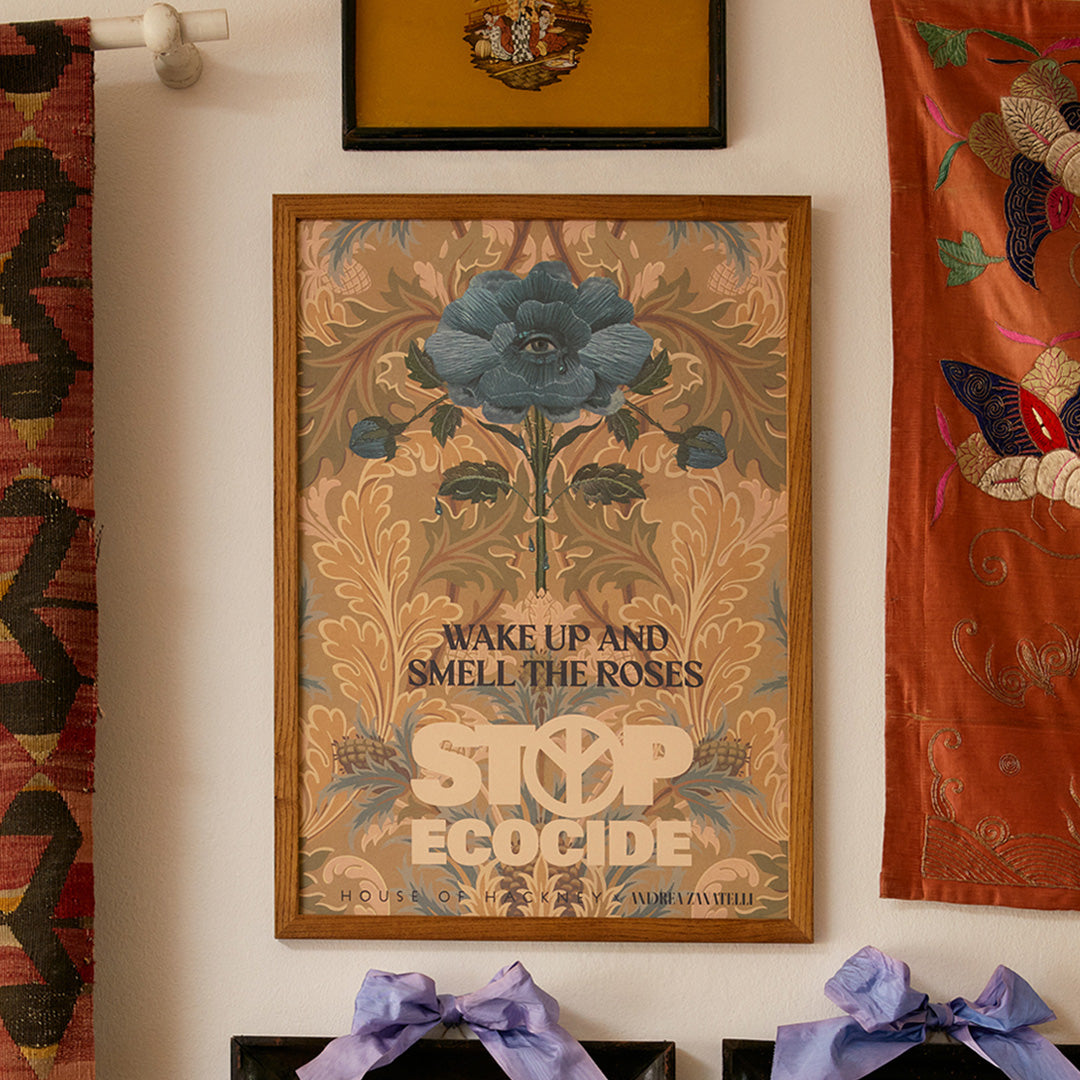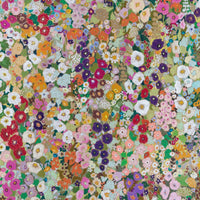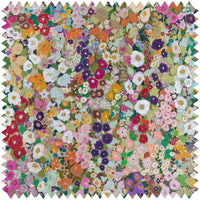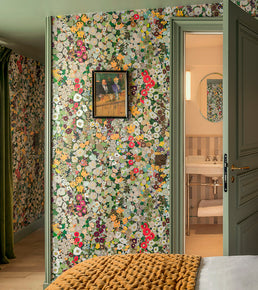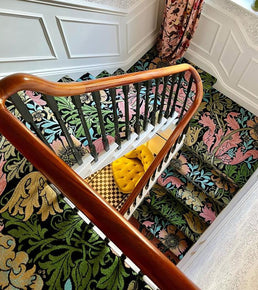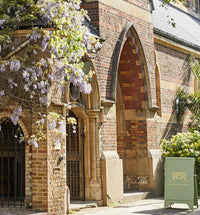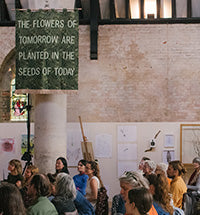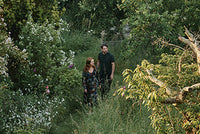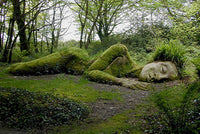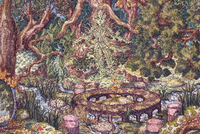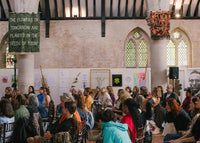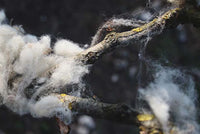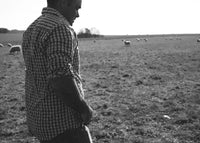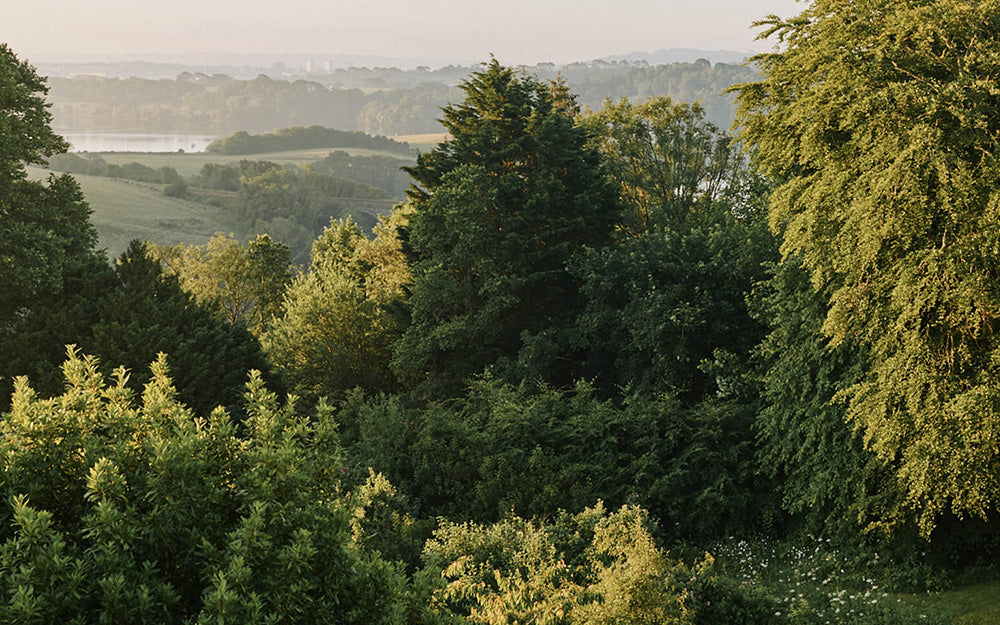

“Nature has been our design muse from the start. But over time, we realised we can’t take such endless inspiration from Nature without giving back so we have evolved our purpose to centre on the restoration of Nature (including human wellbeing) in everything we do. In 2022, we began a journey to learn how to move from being a ‘sustainable’ brand to a measurably regenerative one.
For us this means doing things differently to bring about social and economic change, where instead of just ‘sustaining’ life we actively heal and restore our business touchpoints and communities where we have an impact. We have begun converting big thinking into new ways of doing business that put Nature, including people’s wellbeing first.
We see ourselves as students of regeneration, trying to understand how to be a measurably regenerative business, in hard data and storytelling. We’re deep in research and action, trialling things as we learn. It’s very much a team effort across the whole company, supply chain and beyond.
Leaving a legacy is not about leaving money in the bank, it’s about leaving our world better than how we found it. Nature doesn’t belong to us, we are Nature. And we have a responsibility to tend to it with care, not just for ourselves, but for those yet to come.”
Frieda Gormley and Javvy M Royle, Founders



Our Approach
The social and environmental impacts of running a business are broad and deep. To us, true success is a company that supports thriving for all life on earth. We believe a path to this is becoming a measurably regenerative business and we are on a journey with leading experts and advocates for Nature to learn how. To date, we have grouped how we address our impacts into three key pillars below. Our approach will evolve over time along with our learning.

1. Nature Remuneration and Capital Flows
To be a truly regenerative business, we need to support good social and environmental health, as well as financial health. We want to manage and invest our company cash flow and profit to do just that.
From evolving our 1% of sales fund and calculating the true cost of our products to developing a Nature profit and loss account and reviewing our financial partners for fossil fuels links and other industries harmful to our collective wellbeing, we are committed to using our finances for the good of many rather than the benefit of few.

2. Regeneration and Restoration
Creating and selling products comes with responsibility. At every step in the life of a product there are social and environmental impacts from land and water use to people’s time and skills, carbon emissions, biodiversity loss and more. We are shifting our biggest product impacts on Nature, including human wellbeing, from being degenerative to regenerative.
From how our raw materials are farmed and the farmers who grow them to the craft people who make the finished product, our team who sell them and everyone and everything in between, it means ensuring people and Nature’s resources are considered at every touch point.

3. Activism and Influence
We are big believers in harnessing people power and creativity with purpose. We amplify regenerative solutions through connection, community and campaigns, using our voices and our platforms to advocate for change.
Standing with those demanding urgent action for Nature, we support campaigns including Stop Ecocide International, The Better Business Act and Zero Hours Climate and Nature Bill campaign. As well as hosting our own annual Garden of Tomorrow festival of ideas and launching the #WeAreNature campaign with Lawyers for Nature.
B Corp Certified
We also take into account the B Lab assessment which is the basis of our B Corp certification. It requires us to consider a variety of impacts across Governance, Workers, Community, Environment and Customers, and holds us to account for our progress in these areas.
We re-certified in January 2025 with a score of 109 points, up from 84.8 when we first certified in 2020.

